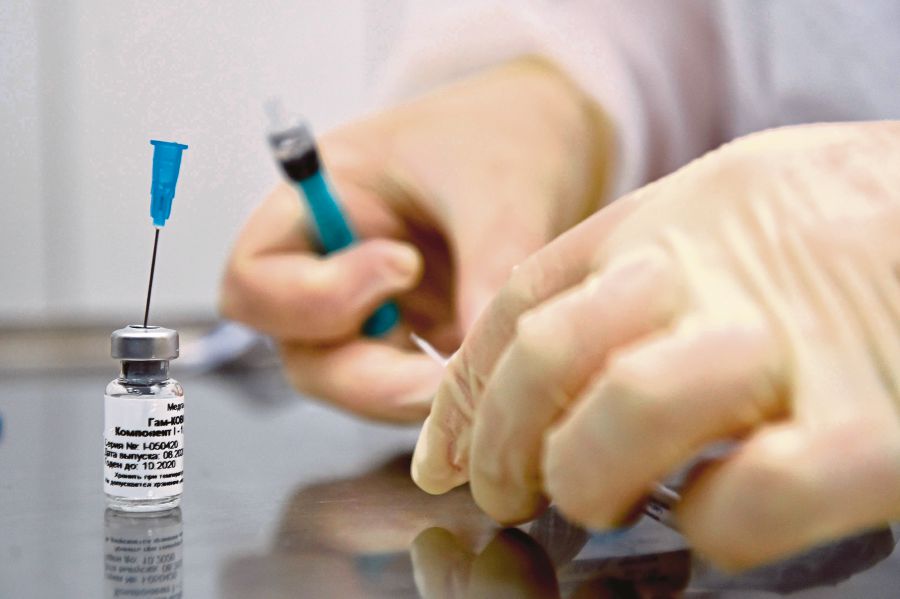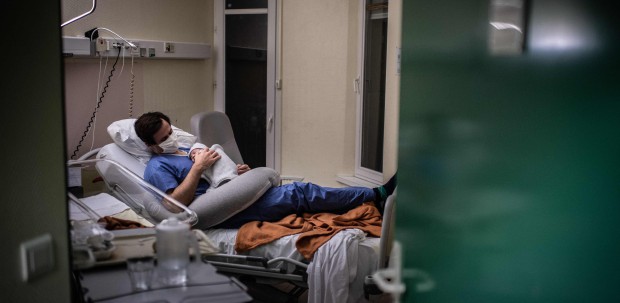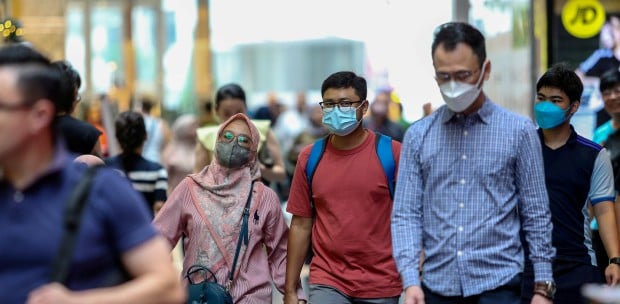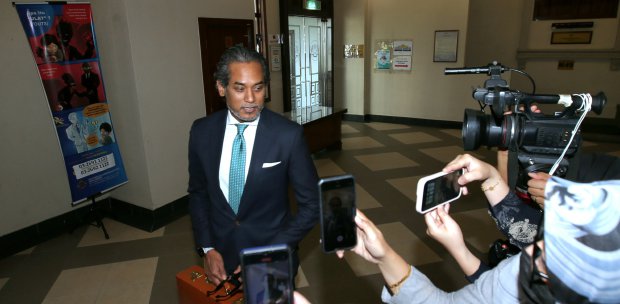ACROSS the world, researchers are offering themselves to science in pursuit of a vaccine for Covid-19, which has taken the lives of more than 900,000 people and sickened more than 27.4 million.
Recently, we saw high-profile American geneticist George Church, of Harvard and Massachusetts Institute of Technology, who holds a United States on "RNA-Guided Human Genome Engineering", tweet a selfie of himself self-administering a doit-yourself (DIY) coronavirus vaccine.
He joins at least 20 other researchers in the citizen science initiative Rapid Deployment Vaccine Collaborative (RaDVaC), cofounded by Preston Estep, to develop a nasal coronavirus vaccine.
RaDVaC is a decentralised community-led scientific initiative based on the principles of individual responsibility, informed consent, open sharing of research results and minimising harm while testing the vaccine's efficacy on scientists themselves.
Nowadays, anyone can access commercially-available reagents, materials and equipment needed to create new vaccines.
The contrast between big-budget pharmaceutical labs and free-spirited biohackers camper van labs and at home labs is nicely portrayed in Biohackers,aGerman sci-fi series set in Freiburg, which is not about a pandemic.
Biohacking is illegal in Germany. "Biohackers" is an umbrella term to denote anyone who applies a DIY attitude towards manipulating a living being through synthetic biology, DIY science, bodyhacking or health optimisation.
More extreme biohacking involve microchip implantation under the skin or genetic engineering with CRISPR DNA injection, as Josiah Zayner did in 2017.
Zayner and fellow biohackers planned to inject themselves with DIY coronavirus vaccines and document their experience on social media. Such scenarios are not uncommon in the history of medicine, with sometimes horrific examples of medical self-experimentation.
In 1914, American infectious disease expert Joseph Goldberger injected himself, his wife and other volunteers during a gathering with blood and ate pills with faeces and urine from pellagra patients to prove that the disease was non-infectious, but caused by nutritional deficiency.
American virologist Jonas Salk first tested the polio vaccine on himself and his children in 1952, while Russian virologist couple Marina Voroshilova and Mikhail Chumakov tested an oral polio vaccine on their three sons in 1959.
It took a long 60-year battle before Southeast Asia was declared polio-free in 2014. Subjecting oneself to an untested vaccine seems ethically and legally wrong.
Yet, the practice is not clearly forbidden in the Declaration of Helsinki, with a set of ethical principles put in place by the World Medical Association in 1964, or in the Nuremberg Code that governs research ethics through enforcement of explicit voluntary consent for human experimentation.
Since the vaccines are self-made and self-administered, RaDVaC and biohackers can avoid the need for regulatory approval.
The fact that one would risk one's own life as a sign of good faith makes self experimentation a good way to build public confidence for those sceptical of vaccines.
This is demonstrated by Gao Fu, head of the Chinese Centre for Disease Control and Prevention, who had experimental vaccine in late July.
Moscow-based Gamaleya Research Institute director Alexander Gintsburg also a tested vaccine on himself ahead of human clinical trials. But one must not forget the lesson learnt from the polio vaccine trial on more than 200,000 children after Salk's self-experiment, which resulted in 10 deaths and 40,000 children infected with the disabling life-threatening disease due to insufficient viral neutralisation during vaccine development.
Therefore, we must be patient amid the race for a Covid-19 vaccine until safety is proven.
Due to Covid-19, Netflix has pushed back Biohackers' April release to August to prevent fearmongering about science with the series' disturbing first scene.
Despite the exaggerated ease and speed of experimentation, the series showcases the many aspects of biohacking as illustrated by glow-in-the-dark mice and genemodified marijuana.
Meanwhile, many moral and ethical dilemmas need to be resolved through refined Bioethics 2.0, like genetic modifications, access to advanced gene therapy, as well as privacy and consent regarding genomic data.
Expensive genetic engineering experiments previously doable only in labs can now be done on a kitchen table with material bought online.
Hence, it is imperative that genetic biohacking is regulated beyond the labs to prevent the emergence of subversive "biopunks" through a comprehensive Biosecurity Bill in Malaysia soon.
The writer is an associate professor at Universiti Kebangsaan Malaysia leading the Plant Functional Genomics Research Group at the Institute of Systems Biology





